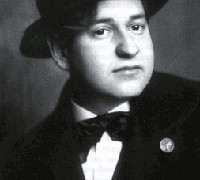Dallas does what the Met can’t dream of doing
mainNew season.
THE RING OF POLYKRATES
&
VIOLIN CONCERTO IN D MAJOR, OP. 35
By Erich Wolfgang Korngold
February 9, 11(m), 14 and 17, 2018
Revered French violinist Augustin Dumay will be the featured soloist with The Dallas Opera Orchestra for Korngold’s sweeping Violin Concerto. Dumay is considered “an absolute master” (Fanfare) and “a violinist of remarkable individuality” (The Daily Telegraph). Paired with Korngold’s one-act domestic comedy, The Ring of Polykrates, in this once-in-a-lifetime musical event! The stellar ensemble cast includes Paul Groves, Laura Wilde, and Craig Colclough in their Dallas Opera debuts. Directed in this brand-new production by Peter Kazaras and conducted by Emmanuel Villaume.

SUNKEN GARDEN
By Michel van der Aa
March 9, 11(m), 14 and 17, 2018
Applauded by both critics and audiences as “a fantastical tale to set the ears and eyes popping” Sunken Garden, described by its creator as an “occult mystery film opera,” fuses film and live singers (including 3-D and other visual effects) to deliver what Steve Smith of The New York Times called “a bold, rewarding venture” in contemporary opera performance. Directed by the composer, Michel van der Aa, and conducted by Nicole Paiement, The Martha R. and Preston A. Peak Principal Guest Conductor, in its U.S. Premiere; Sunken Garden starsRoderick Williams, Katherine Manley, and Miah Persson in their TDO debuts.
You’ll never see these in New York.





Comments